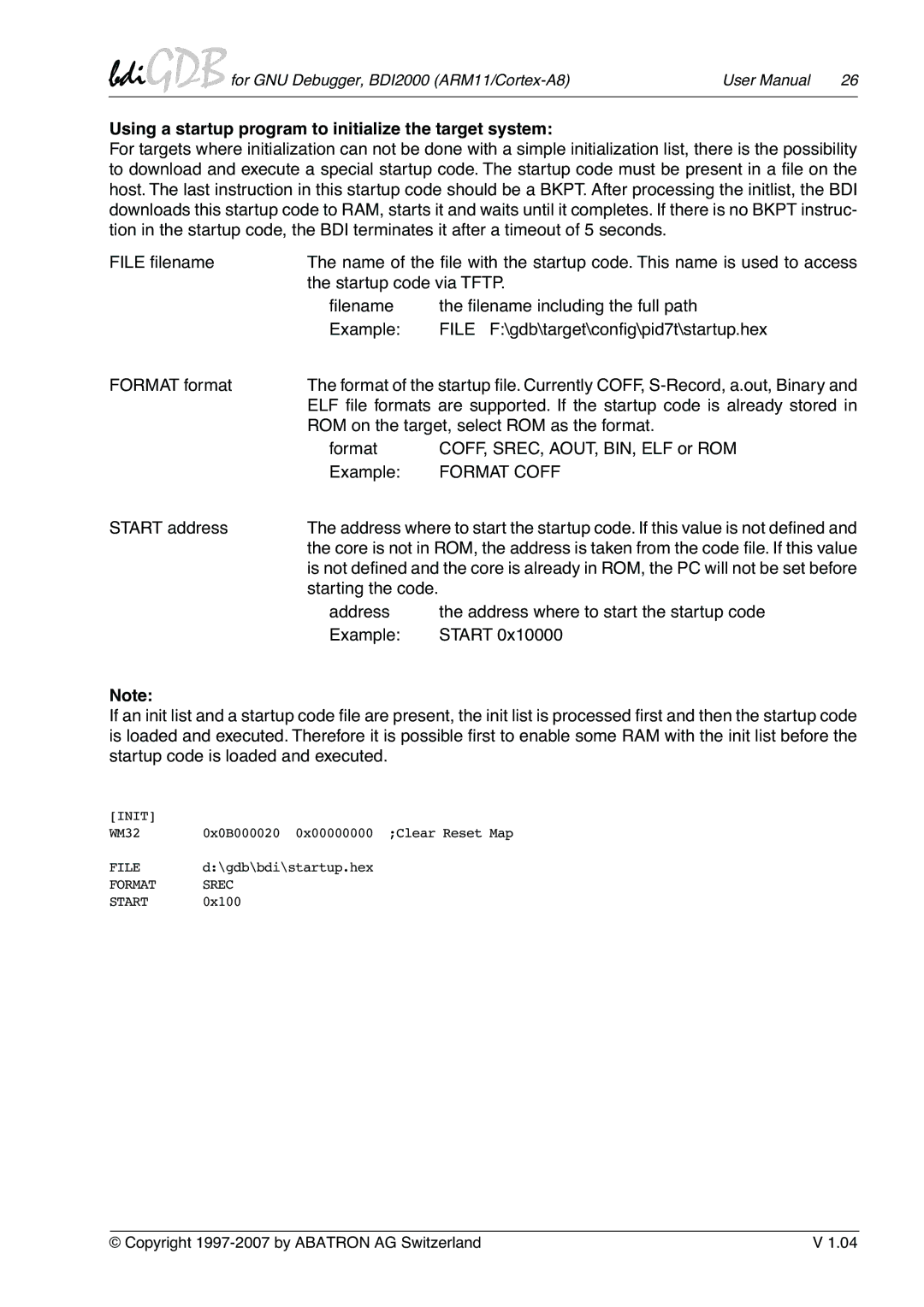
bdiGDB for GNU Debugger, BDI2000 | User Manual 26 |
Using a startup program to initialize the target system:
For targets where initialization can not be done with a simple initialization list, there is the possibility to download and execute a special startup code. The startup code must be present in a file on the host. The last instruction in this startup code should be a BKPT. After processing the initlist, the BDI downloads this startup code to RAM, starts it and waits until it completes. If there is no BKPT instruc- tion in the startup code, the BDI terminates it after a timeout of 5 seconds.
FILE filename | The name of the file with the startup code. This name is used to access | |
| the startup code via TFTP. | |
| filename | the filename including the full path |
| Example: | FILE F:\gdb\target\config\pid7t\startup.hex |
FORMAT format | The format of the startup file. Currently COFF, | |
| ELF file formats are supported. If the startup code is already stored in | |
| ROM on the target, select ROM as the format. | |
| format | COFF, SREC, AOUT, BIN, ELF or ROM |
| Example: | FORMAT COFF |
START address | The address where to start the startup code. If this value is not defined and | |
| the core is not in ROM, the address is taken from the code file. If this value | |
| is not defined and the core is already in ROM, the PC will not be set before | |
| starting the code. |
|
| address | the address where to start the startup code |
| Example: | START 0x10000 |
Note:
If an init list and a startup code file are present, the init list is processed first and then the startup code is loaded and executed. Therefore it is possible first to enable some RAM with the init list before the startup code is loaded and executed.
[INIT]
WM32 0x0B000020 0x00000000 ;Clear Reset Map
FILE d:\gdb\bdi\startup.hex
FORMAT SREC
START 0x100
© Copyright | V 1.04 |
